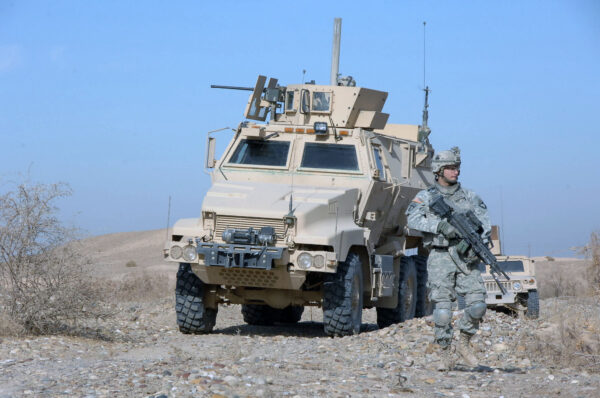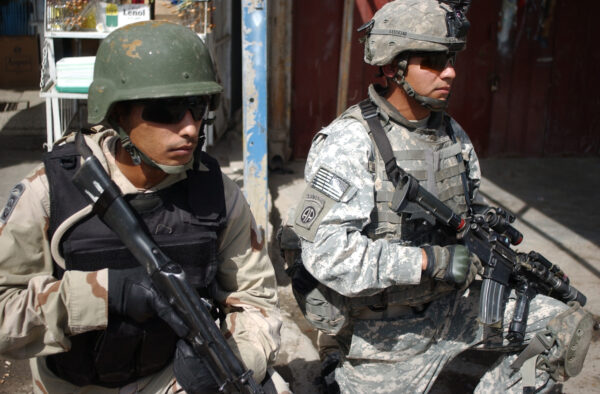
A U.S. Army unit conducting a patrol in Samarah, Iraq in 2008. (Photo: Spc. Jordan Huettl, U.S. Army)
On Dec. 15, 2011, the United States declared an official end to the War in Iraq. Lasting nearly nine years, the conflict led to the deaths of 3,519 Americans and another 32,222 wounded — many by improvised explosives that left them permanently disabled.
Prelude to the Invasion of Iraq: The Global War on Terror & Weapons of Mass Destruction
The September 11 Attacks fractured peace in the United States, putting the nation on the offensive. Not long after the attacks, President George W. Bush declared a Global War on Terror, to include groups like Al Qaeda in the War in Afghanistan as well as state sponsors of terror.
Less than two years after the Attacks on September 11, a decade of tension between the U.S. Government and Saddam Hussein’s Iraq reignited. The United States contended that Iraq was developing weapons of mass destruction, demanding that Hussein step down and flee Iraq, else face military action.
Hussein refused, and on March 20, 2003, the War in Iraq began.
The War in Iraq: An Insurgency Grows From Hussein’s Defeat
The U.S.-led coalition quickly toppled Hussein’s regime in Iraq. In many instances, the Iraqi Army fled or surrendered rather than face Coalition forces. However, paramilitary forces loyal to Hussein offered fierce, yet highly disorganized resistance before ultimately capitulating by early May. This style of fighting would ultimately form the blueprint for an insurgency that would harass occupying U.S. and Coalition forces through the remainder of the war.
Legacy of the Invasion of Iraq

U.S. Forces began training a newly formed Iraq Army years after Saddam Hussein’s regime was toppled in 2003. (Photo: Sgt. Jeffrey Alexander, U.S. Army)
In 2004, as U.S. and Coalition forces continued to suppress growing insurgencies, a bipartisan commission in Congress found that there was no evidence that Hussein’s regime colluded with Al-Qaeda; and evidence of weapons of mass destruction never materialized.
Whereas initial public support for the war was high, it rapidly waned, particularly as U.S. casualties mounted and evidence of U.S. war crimes at Abu Ghraib prison came to light. Nevertheless, the United States continued to occupy Iraq through 2011, with the primary goal of creating a new regime that could maintain order and peace in the fractured country.
On Dec. 15, 2011, U.S. occupying forces officially withdrew from Iraq. However, a small force has remained in the country to assist the Iraq Army as it counters ISIL and Iraq-backed insurgencies.
To learn about more U.S. Military events and veterans holidays, click here.













